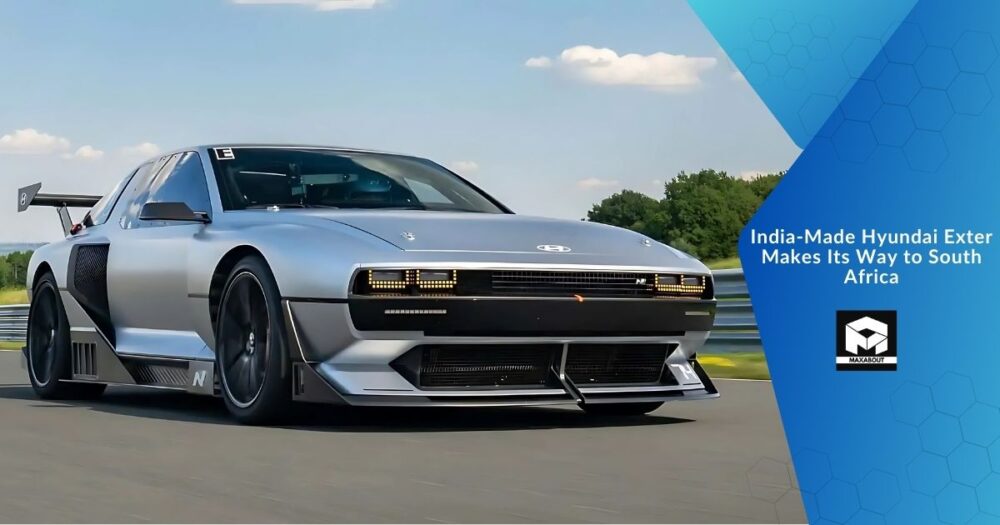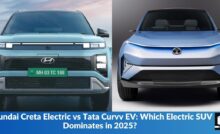Hyundai’s Bold Move: N Vision 74 Concept Shelved – Industry Insiders Reveal Why!


So let’s dive into Hyundai’s big bold move to axe the N Vision 74 concept: A decision that’s got us all scratching our heads. If you’ve been following Hyundai’s innovation track of late, then you’ll know what the N Vision 77 is and you’ll also know now that it was something special. Futuristic, bold and quite frankly had the potential to define what the future electric sports car would be. If this is such an exciting concept, though, why would Hyundai put the brakes on it? So I’ve been all over the place digging into some of this, and there’s a little bit more to this than what meets the eye.
Why N Vision 74 shelved?
Talking to a few industry insiders after the decision was announced makes it seems like this wasn’t about the car’s design or tech not being up to par. In fact, many people at the company loved this N Vision 74. The issue was really what the broader strategic direction of the company was. At least for now, Hyundai is doubling down on full battery electric vehicles (BEVs) and will put hydrogen tech on the back burner.
As I understood it the hydrogen infrastructure just isn’t there yet, and Hyundai’s management team felt the resources required to make the N Vision 74 a reality would be better spent on their upcoming BEV lineup. I get it—hydrogen fuel stations remain few and far between, while charging stations are starting to pop up everywhere. It’s a classic timing case.
What was so special about the N Vision 74?
Eventually, we’ll get to why the N Vision 74 had everyone talking. This wasn’t any hybrid. The result blends hydrogen fuel cell technology with battery electric power. I’ve seen my share of hybrids, but this one was different now. It’s like being able to either charge your car or refuel it with hydrogen. The kind of versatility we’ve been waiting for.
And it was more than what was under the hood, though. The N Vision 74 was based on Hyundai iconic Pony Coupe concept of 70’s. Curves plucked from files from the sci fi movie vault, retro futurist vibes, sharp angles; monochromatic explosions of ink dots, meshes and line strokes. I had honestly been thinking to myself when i first saw it, this could be a head turner. Hyundai decided to shelve it, and I just had to wonder, what went wrong?
Why was the N Vision 74 shown by Hyundai??
So I asked around with a few people in the industry and it doesn’t seem like a case of weak design or weak technology. Hyundai, in fact, had plenty of internal fans of the N Vision 74. The real issue? Strategy. There are now two camps at Hyundai Full battery electric vehicles (BEVs) and definitely something else at least for now.
According to all I learned, it’s all about infrastructure. Because hydrogen fuel stations are few and far between because Hyundai’s management didn’t think investing in a hydrogen powered car made sense right now, it… On the other hand, charging stations are sprouting like mushrooms. It’s mostly a timing issue and there is no magic amount of time that will influence your health enough to give you a bounce, although I can’t rule it out entirely.
Reality in the Electric Car Market
This is a calculated move by Hyundai. As EVs are set to be the auto industry’s dominant force, they’ve decided to direct their money to models like Ioniq 5 and Ioniq 6. In the market these cars are already making waves and Hyundai seizes a bigger growth opportunity there. Hydrogen powered cars are cool, but they’ll have to become more mainstream before deserving such a car as an investment.
From a business perspective, I’ll say it’s smart. And while I’m excited about new exciting ideas, it’s a letdown. We really feel like we’re missing out on what could well have been a real game changer for the automotive world. It’s hydrogen powered sports cars, for goodness sake. That’s next-level stuff!
Was It All Just a Tease?
You might also be wondering whether the N Vision 74 was just a showpiece to show off Hyundai’s technological prowess? Maybe a little. Lots of concept cars are kind of kicking the tires to see what they could do, rather than what they will do. As flashy as the N Vision 74 was, however, it wasn’t just a prototype. Hyundai has both cutting edge tech and daring design. Just because those ideas are shelved now doesn’t mean they won’t inform future models.
Who knows? We could, perhaps, see some of that hydrogen tech find its way into Hyundai’s lineup down the road once the infrastructure catches up. The dream isn’t dead, just on hold.
Final Thoughts: Is Hyundai Playing It Safe?
Is Hyundai playing it too safe, shelving the N Vision 74? Maybe. Perhaps they are being a little Cynical. I would like hydrogen powered sports cars driving around right now, but the electric future is already here and Hyundai is wise not to get left behind. I get it. However, a part of me still wanted them to have taken a little more leap of faith on this one.
What do you think? Was it clever or stupid to shelve the N Vision 74, as Hyundai did? What do you think of this bold move? Let’s talk.
Recent Posts
2025 Royal Enfield Hunter 350 Spied: Key Features, New Design & Launch Details Revealed
The buzz around the 2025 Royal Enfield Hunter 350 is heating up as the launch…
Ducati Scrambler Full Throttle 2025: New Launch, Standout Features & Pricing Details
Ducati has just unveiled the Scrambler Full Throttle, a motorcycle that embodies the spirit of…
Skoda Kodiaq 2025 India Launch: Top Features, Tech Upgrades, and Pricing Explained
Skoda has officially launched the Kodiaq, its flagship SUV, and it’s making waves in the…
2026 Honda Jazz Leaked: First Look at New Design, Features & Hybrid Tech
Recently, some exciting images of the 2026 Honda Jazz have surfaced online, giving us a…
Hyundai Hybrid Tech Unveiled: What’s New in Efficiency, Power, and Innovation?
Hyundai has just revealed its latest hybrid systems, aiming to redefine what we expect from…
Mostbet Application Down Load Apk For Android In Add-on To Ios 2024
Note A Person could likewise get older versions of this particular software on base regarding…

